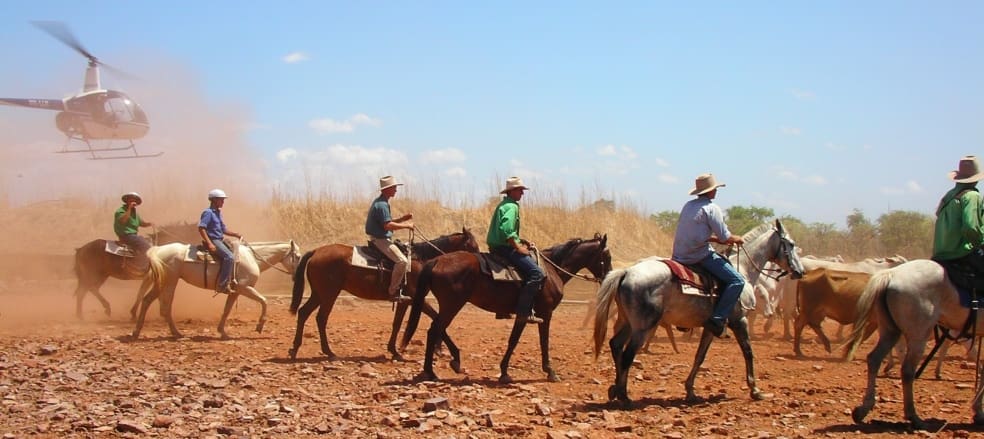Latest listings on Jobs Central recruitment page:
- Supervisor – Meat Processing, Boning Room – Australian Country Choice
- Maintenance Manager, Aronui Feedlot – AA Co
- Territory Sales Manager, Livestock – Elders Clermont
- Operations Managers, Regional Livestock Exchange Facilities – AAMIG
- Livestock Overseer – Cunningham Cattle Co
- Feeder / Stockperson, Feedlot – Talbingo Pastoral
- Feedlot Worker / Pen Rider – Wanderribby Feedlot
- Capital Project Manager, Food Processing – Australian Country Choice
- Operations Manager, Regional WA – via Rimfire Resources
- Chief Executive Officer – Primary Industries Education Foundation
Click here to access these and other exciting meat and livestock supply chain jobs currently listed on Jobs Central.

THE COVID-19 pandemic has seen unprecedented – and for the most, unforeseen – circumstances in Australia and around the world. The crisis has thrown organisations into uncertainty and ambiguity, particularity when it comes to dealing with their employees.
There are few businesses that are not affected in some way by the crisis, with most having a level of adverse circumstances forced upon them. This has taken the form of supply chain issues, reduction in turnover or a stoppage of work ordered by the Government.
There has been a raft of legislation passed by Parliament since the crisis began from JobKeeper, JobSeeker with JobKeeper Enabling Stand Down Direction to COVID-19 Modern Award changes, and many of these are largely unclear on how they apply and the options available to employers when attempting to keep their businesses afloat and what to do with employees.
So, what exactly are your options as an ag-sector employer, if your business is adversely affected by COVID-19 and you do not have the work to sustain your current workforce?
In many cases, substantial cost savings can be achieved by working and consulting with employees around reducing work hours or taking annual leave during the period. However if these options prove unsuccessful, more severe options might need to be taken.
Highlighted below are a couple of options available to businesses to manage their employees during the COVID-19 pandemic.
Stand Down
According to section 522-527 of the Fair Work Act 2009, an employer may lawfully stand down employees without pay. The stand down is a direction by the employer and not an agreement that is reached between both parties, and it is determined that the employee cannot be usefully employed elsewhere.
Whilst on a stand down, the employee is still an employee of the employer, however, will not receive pay for that period of time. However, the employee shall continue to accrue leave entitlements and the period of stand down will NOT break an employee’s continuous service.
Reasons for a stand down
It is important to note that a stand down can only be directed under a few circumstances which include a stoppage of work for any cause for which the employer cannot reasonably be held responsible for. When we delve into more detail, the Fair Work Act s524(1)(c) does not strictly address any pandemic situations, however it does reference natural disaster.
During the COVID-19 pandemic reasons that may warrant a stand down could include:
- The business if forced to close because of an enforceable government direction relevant to non-essential services.
- The majority of the workforce is required to self-quarantine meaning the remaining employees are unable to be usefully employed.
Potential Risks in a Stand Down
While we are hearing many examples of large businesses standing down employees on a mass scale, it is important for any business considering this as an option to carefully review their own position. Employers should ask the following questions to ascertain their ability to legally stand down employees:
- Does the contract of employment of enterprise agreement reference a stand down and if so, what are the conditions around this? Does it require additional consultation before the stand down can occur?
- Is COVID-19 the real cause of the stand down?
- Has an actual stoppage of work occurred? It has to be more than a downturn.
- Have other opportunities for redeployment been explored?
- Is the employee on some type of leave? An employee cannot be stood down if they are taking an authorised period of paid or unpaid leave.
Redundancy
It is important to remember that a redundancy is still a dismissal, therefore terminating the employee’s employment and should be used as a last resort. If a redundancy is deemed genuine at law, then it will operate as a defence against an application for unfair dismissal. However, there are conditions that need to be met for it to be considered genuine:
- The role within the organisation is no longer required to be performed by anyone and this is generally due to changes in operational requirements.
- Consultation obligations have been met in line with an award or enterprise agreement. Note that almost every award has specific consultation obligations around major workplace change.
- All redeployment options have genuinely been explored within the business or an associated entity.
All of the above conditions need to be met for a redundancy to be deemed genuine and an employer would have to demonstrate the robustness of the process followed in order to defend an unfair dismissal claim.
Other Options
Due to the unprecedented circumstances and the hope that what we are experiencing is not a permanent situation, employers should explore all avenues when it comes to managing how to deal with the slowing of their business.
Re-negotiating the hours an employee works for a period of time, mutually agreeing to reduce pay, or agreeing to employees slowly using up annual leave can all be less risky alternatives.
Finally, if you do have employees working from home it is important that compliance with Health and Safety obligations are met. Workplace health and safety laws generally require businesses to eliminate or minimise risks to the health and safety of workers in a way that is reasonably practicable, and employers allowing employees to work from home or remotely may need to assess the risk of the employees environment. Ensuring the implementation and communication of a working from home and COVID-19 policy is essential for the successful transition to home based work.
Remember that all the above mentioned scenarios require compliance with regards to how the process is managed, as well as the right documentation to be issued and executed.

- Rimfire Resources’ team of highly experienced HR professionals are on stand-by to advise you and support your business if you find yourself needing to make decisions around your employees. Questions can be directed to kwall@rimfireresources.com.au or 0417 572 906.
